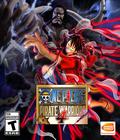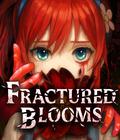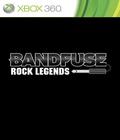WP: Who has the honor to speak with us? State your name, rank and occupation!
I'm Seth Chapla, and I'm lead note tracker on BandFuse.
WP: What exactly does a lead note tracker do? I can't say I've seen that as a job title in a video game.
SC: Well, it's interesting. That's a title that has been around since Guitar Hero, but basically, you're kind of the lead musician on the project. You're checking transcriptions, you're doing some transcribing, and you're kind of like a core gameplay designer. You're breaking down the levels to different difficulties, doing whatever it is you can to try to simulate. Sometimes I try to play lefty or do whatever I can to get in the mind of a beginning player and then get real nitpicky on the top-level stuff.
WP: We've seen Guitar Hero, we've seen Rock Band, and we've seen things progress to the pro guitar in Rock Band and Rocksmith. Over the past few months, Rocksmith has dropped in price, and Rock Band has just been a constant flow of DLC. What makes you think there is a market for a real guitar game? You're limiting yourself by telling gamers that they need a real guitar. Why take the risk?
SC: It is risky in a way, but Rocksmith did really well. They had something like 600,000 [units] sold domestically. Anybody who has those guitars can play this game because any electric guitar works. The big difference with this game is that it's kind of bringing some of the spirit back into the game. It makes it a little more fun. There's more of a party element because you can do two guitars, a bass, and vocals all at the same time. We're trying to bring that flavor from Rock Band into it. If you watch the progression, there's Guitar Hero, and then Rock Band kind of lapped it in a few ways, and then Rocksmith came out, and it was a real guitar game. But it's a real guitar game made from a gamer's perspective, whereas this is a guitar game made from a musician's perspective, so I think there's an authenticity there that we can bring that hopefully people will react to.
WP: How about the training aspect? For experienced guitar players with Rocksmith, they can hop into BandFuse and start jamming. As a beginning guitar player, one of the appeals of Rocksmith was the fact that it had a lot of tutorials and kind of eased you into it. You guys are switching up the way you do note tracking from competitors. What should a beginning guitar player expect?
SC: We have a tutorial video where Slash goes through and explains every little element, which is really pretty cool. We're teaching you tablature, and tablature is the most widely accepted form of guitar notation. The beauty of it is that whatever you learn in this game, you can take to the outside world. I know one of the complaints with Rocksmith in the forums was that people were saying, "I can play the song, but I can't go out and necessarily read tablature." It's not that it's a super hard system to learn; I think it's pretty simple. I'm actually kind of surprised they didn't go with it, but I think it's the next step. It's an authenticity thing, but we're going to teach it. There are going to be levels that somebody who's never played before can play. We have some people on our team that we use – like marketing people – and we'll have them come in and try to play just to see how they react.
WP: On the flipside, how do you handle difficulty levels? Do you pick a level and play it? Can you switch it in-game? Does it switch automatically? How does it work?
SC: It's not a dynamic system like Rocksmith. It's a discrete system. Basically, the way the levels work is the bottom level is static; it's super easy. We don't want to discourage the beginning player. The top level is note for note. In some cases, I think the best transcription's available because we have the multitracks. We can listen to the guitar solo and really find out what the player was playing. Everywhere in between has levels that ramp. We have five levels total, and those levels get harder as you go through. Each time you see a phrase, it'll be introducing a new element. It's akin to the way that Rocksmith works, but it's much more discrete, and you can select the levels.
WP: You've got guitar, rhythm, bass and vocals. How many players do you support at once?
SC: Four at once, and that's what I think the big game-changer is. Again, it could only happen because we built this engine from the ground up with that in mind, so we can run four instances of the note detection at the same time.
WP: How do you do the vocals? Is it karaoke-style, or will there be scoring and tracking?
SC: There's a scored version, and there's what I like to call the "drunk at a party" mode. That's what I'm calling it. I don't know if that's PC [politically correct] or not, but that's my jam. There's a karaoke mode that's not scored, which is the one I have to play because I'm an awful singer and I don't want people to see how bad it is, and there's a scored version that works just like Rock Band. We've kind of worked with them on some of the code there.
WP: I don't want to focus too much on other games, but you mentioned that BandFuse works with electric guitars. What about the cables? If I have Rocksmith and I buy BandFuse and get the BandFuse cable, can I then use both cables on the game for two guitars, or am I going to have to buy a whole new set of cables for BandFuse?
SC: That would be awesome if you could interchangeably use them, but no, we can't really support theirs and vice versa. The thing I'm most excited about is that we'll be shipping with a dongle for the back to break out to RCA. That is a universal thing that can be used on any Xbox, and those are in rare supply. I know there were complaints about that when Rocksmith came out. Some people didn't have them, they never even shipped with the game or with the console — you know, the little RCA break-out. We're actually shipping with one of those in the pack, so if you don't have one and you've been trying to play Rocksmith and can't because you get a bunch of lag because of HDMI, you can use our break-out. There is some interchangeability, I suppose.
WP: When it comes to the idea of rock and guitars, there's a wide range of genres. That's something that Harmonix has explored with Rock Band simply becasuse they've had the time, but what about your selection? Is BandFuse focusing on a particular genre or style? What type of music is the game going to ship with?
SC: It's a really wide range. I think you always have to do that with an initial release. You kind of want to be everything to everyone. It's a great set list. I've been working on that recently. I'm also an audio guy on the project, so I've been mastering them so they're all at the same volume. It's just a great set list. I love it. We have a huge range from classic rock through nu metal. We're supporting every tuning, basically, so if you played Rocksmith and you can only play E Standard and Drop D, we're going to support D Standard, we're going to support Drop C. That opens us up to a lot of heavier metal acts that the newer generations really like that haven't been possible in the past.
WP: Since you mentioned tuning, can you explain a little bit about how your polyphonic tuning works? In Rocksmith, you more or less have to tune almost before every song.
SC: We know that was one of the complaints early on. I know my guitar's in tune, and I don't want to go through this. In this game, it's optional. You can just push right through the tuner if you don't want to use it and know that you're still in tune from the last song. In addition, we have such good analytics that you can strum all the strings, and it'll tell you which ones are sharp and which ones are flat right off the bat. Then you can go in and fine-tune those strings. We tried to make it as elegant as we possibly could in that way.
WP: If you had to sum it up in 2-3 sentences, what is it about BandFuse that makes it worth playing?
SC: Teaching the player real tablature so that they don't have to rely on us to play guitar in the future is one of my favorite things. Some of the teaching features that we have that really haven't been shown as far as breaking up elements of songs or giving people ways to explore scales or things like that, that just haven't been touched yet.
More articles about BandFuse: Rock Legends










 Letting gamers plug in a real guitar and casually strum along with their favorite songs or master the techniques of the world's most iconic guitarists, BandFuse: Rock Legends gives players the chance to experience their favorite songs like never before.
Letting gamers plug in a real guitar and casually strum along with their favorite songs or master the techniques of the world's most iconic guitarists, BandFuse: Rock Legends gives players the chance to experience their favorite songs like never before.